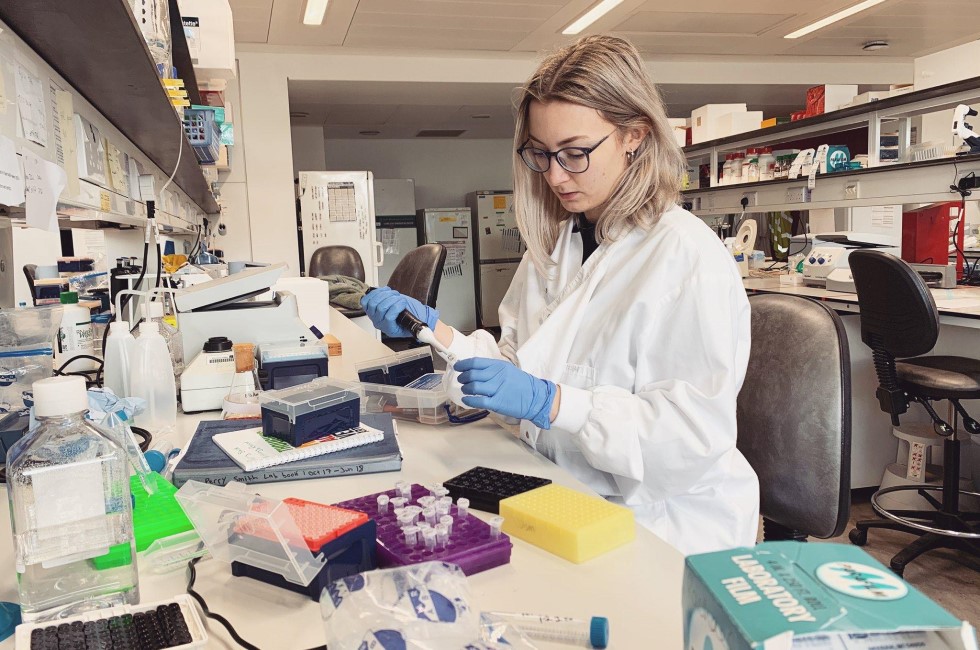Rising to the challenges of a “lockdown”
Since March, we’ve been working closely with our award-holders to work out the impact of lockdown on their projects and programmes and do what we can to support them. There’s been such a variety of experience. While some researchers have been able to work very effectively from home, those with lab-based projects found it to be a particularly challenging time. But we’ve also been hearing how, even if they could not access the lab to work on their projects, they’ve been making their contribution to the national effort to manage the impact of COVID-19. We’ve been very pleased to be able to support them in this.
Here’s Paige Paddy’s story. Paige is a doctoral student on a £1M five year programme grant we funded in 2016. The programme is a partnership between teams at Newcastle University and the University of East Anglia (UEA) on the role of microRNAs in treating osteoarthritis. The focus is on finding the optimum way to deliver microRNA to the joint to act as a therapy, and building a computer model to identify the outcomes of changing specific microRNAs therapeutically, with a view to moving the research towards clinical use. Paige is part of the UEA team.
Due to previous research experience, my expertise in molecular biology provided me with the valuable skills required to contribute within the field of RNA virology
Paige Paddy, University of East Anglia
The worldwide pandemic came at a crucial stage in the final year of my PhD project. Motivation in the lab was high, optimisations and protocol developments were in progress, and I was ready to begin the remaining set of experiments that would (hopefully) provide me with the data for my thesis. As the world went into lockdown, this was halted, and working from home commenced.
As a research scientist in a biomedical field, previous NHS worker, and sibling of a paramedic, I wanted to do more to help with the current situation the world was in. Due to previous research experience, my expertise in molecular biology provided me with the valuable skills required to contribute within the field of RNA virology. At the beginning of lockdown, I registered my interest to support the NHS and volunteer to help increase COVID-19 diagnostic testing.
Fortunately, I joined an amazing team of scientists at Norwich Medical School in the Bob Champion Research and Education building (BCRE), setting up a new lab for COVID-19 testing, and providing additional support to the Norfolk and Norwich University Hospital (NNUH) Microbiology department. To begin with, our days consisted of protocol optimisations, figuring out the most efficient, accurate and sensitive methods, while quickly learning about the SARS-CoV-2 RNA virus. In time, and in close collaboration with the Microbiology and Virology team at NNUH, with support from the Earlham Institute and others across the Norwich Research Park we automated the system enabling us to increase our capacity. I took part in the process of interlab validation of our systems across a number of platforms that obtained NHSE approval and the new BCRE COVID-19 diagnostic lab was ready to receive daily patient samples.
From then onwards, we continued the intense job of lysing, RNA extracting, and qPCR analysis of patient swab samples, before reporting results to the hospital that day. This volunteer placement provided me with valuable experience, demonstrating how at the UK’s most vulnerable times, we can use all resources available to come together and support each other.
I am extremely proud to have participated in COVID-19 work within the NHS, and thankful to all essential workers during this unprecedented time
We’re now working out our support package for the programme team as they work out their respective plans to return to work in the lab.


1 comment